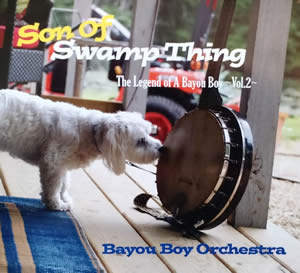 Jay Psaros’s latest, self-titled CD follows along similar roots as his previous works. This time around he brings a fresh, wide-ranging feeling to his singer-songwriter flare. With a voice that many singer-songwriters would kill or die for, Psaros never fails to deliver the emotive, musical goods with understated artfulness and vivid details.
Jay Psaros’s latest, self-titled CD follows along similar roots as his previous works. This time around he brings a fresh, wide-ranging feeling to his singer-songwriter flare. With a voice that many singer-songwriters would kill or die for, Psaros never fails to deliver the emotive, musical goods with understated artfulness and vivid details.
Opening with “Young Man,” Psaros’s ode to self-realization, the singer-songwriter offers a bittersweet reflection of his youth. Like most young people, he didn’t know as much as he thought and wasn’t as strong as he believed. While the theme is universal, this singer-songwriter makes it a personal revelation by relating his daily surprise at his own limitations. His tender, smooth vocal hits the listener’s emotional soft spot as much as the pedal steel that winds is mournful melody around his words.
“Downtime” follows an enticingly peppy beat while Psaros lays down his naturally tender vocal. Examining the subject of love, the singer-songwriter finesses his way through his thoughtful lyrics with a persistent warmth. His voice is almost a gentle coo when he sustains some of his vocal notes for emphasis, showing he’s one of those singers that others wish they can sing like.
“Whiskey In The Rain” seems to start in media res, and that works well. Psaros sings of something that continues, behaviorally, on a routine basis. There is no beginning or end of this story song. It’s as eternal and ephemeral as the sweetly picked acoustic guitar and pedal steel, notes that seem to ring out into a higher plain that just this song.
“Modern Times” moves with a graceful pluck. Sweeping, swirling organ chords and an adept drum beat form the platform for Psaros to strut his stuff vocally. Here, he sings with more forceful emphasis on his words. His lyrics move forward on the strength of their action words and the image conjured by his chorus: “modern times in an ancient world.” The singer-songwriter creates a solid sense of someone trying to stay in touch with and on top of the constant flow and flux of our current times.
A sprawling, easeful honky tonk number, “Barroom Singer,” finds Psaros singing in an appropriately meditative, rootsie style. His down-home timbre is quite at home on the range of this country flavored tune. His smooth vocal timbre contrasts beautifully with the rangy personality coming from pedal steel and the other colorful acoustic instruments. A swelling harmonica fills this soundscape with more rustic flair and we cannot get enough of this country blues.
“Somebody Else” moves along a take-your-time groove. It has a coolness in the depth of the beat and groove that grow in presence as this tune moves along. Bits and pieces of electric guitar, percussion, and a moody pedal steel create an apprehensive air. Psaros finesses this one by singing in a brighter tone than the rest of the group. While the music suggests someone might be having difficulties with another, Psaros surrounds it with a warm, gentle reassurance that it’s OK to occasionally be “somebody else.”
“Sapa Valley Love Song” rides in briskly on the strength of Psaros’s swift guitar picking style. Rippling guitar notes create a feeling of motion. A delicate fiddle melody wafts in to add another layer of texture, a haunting feeling that the listener feels compelled to listen more closely to. Psaros’s and a backing vocalist create a soothing tuft of vocals that flows over that acoustic guitar, a flow so smoothly it isn’t funny. This is folk-pop at its finest, the motion, the feeing, the vocal pull.
Another sweet blend of folk and pop, “Californ-I-A,” Psaros does a lot with Psaros’s understated vocal, some self-restrained low end and percussion, and several other nice touches from electric piano and organ. The multiple flavors in this song could make it go over with fans of folk music and fans of The Beach Boys. Its irresistible glides of voice and keys could make it a hit on local radio stations. In fact, anyone who’s every taken a road trip to the west coast would probably dig it.
A bit of old time charm makes “Time To Go Home” an enticing number. Its considerately paced rhythms and intricate, tasteful guitar and horn lines take one back to a more fanciful time in American music. Psaros is every bit the 1940s style crooner with his self-restrained vocal approach, letting his natural timbre fill the open spaces with understated grace.
Psaros closes out his disc with “Underneath The Moon.” Talk about class. This singer-songwriter’s easeful vocal approach and string section support come together in huge waves of grandeur, magic, special quiet moments that suddenly sweep far and wide. The listener feels lassoed into a fun, spirited, and large occasion.
Psaros keeps growing by leaps and bounds as an artist. This new, self-titled CD is sure to please his following while attracting even newer fans.

